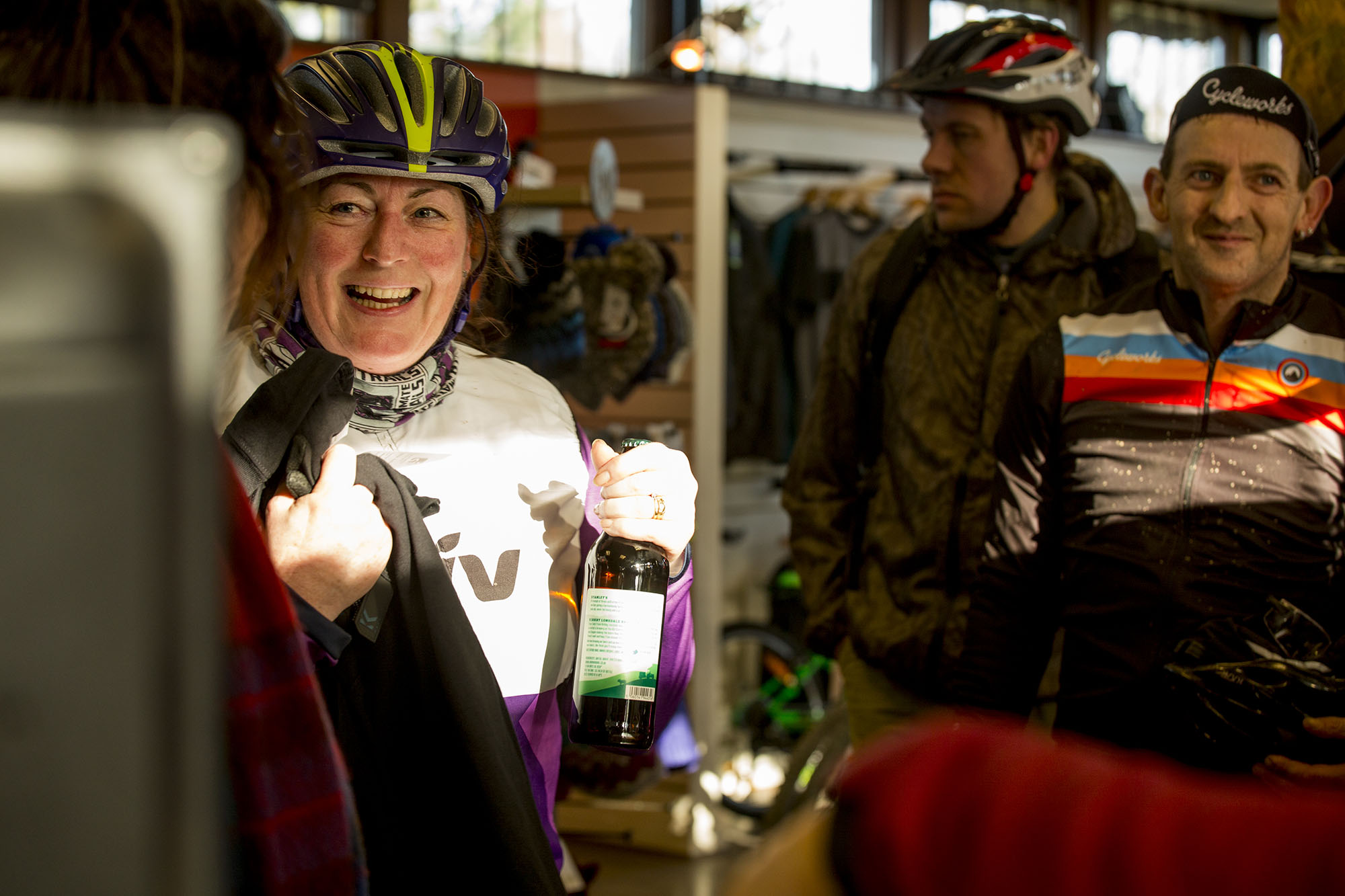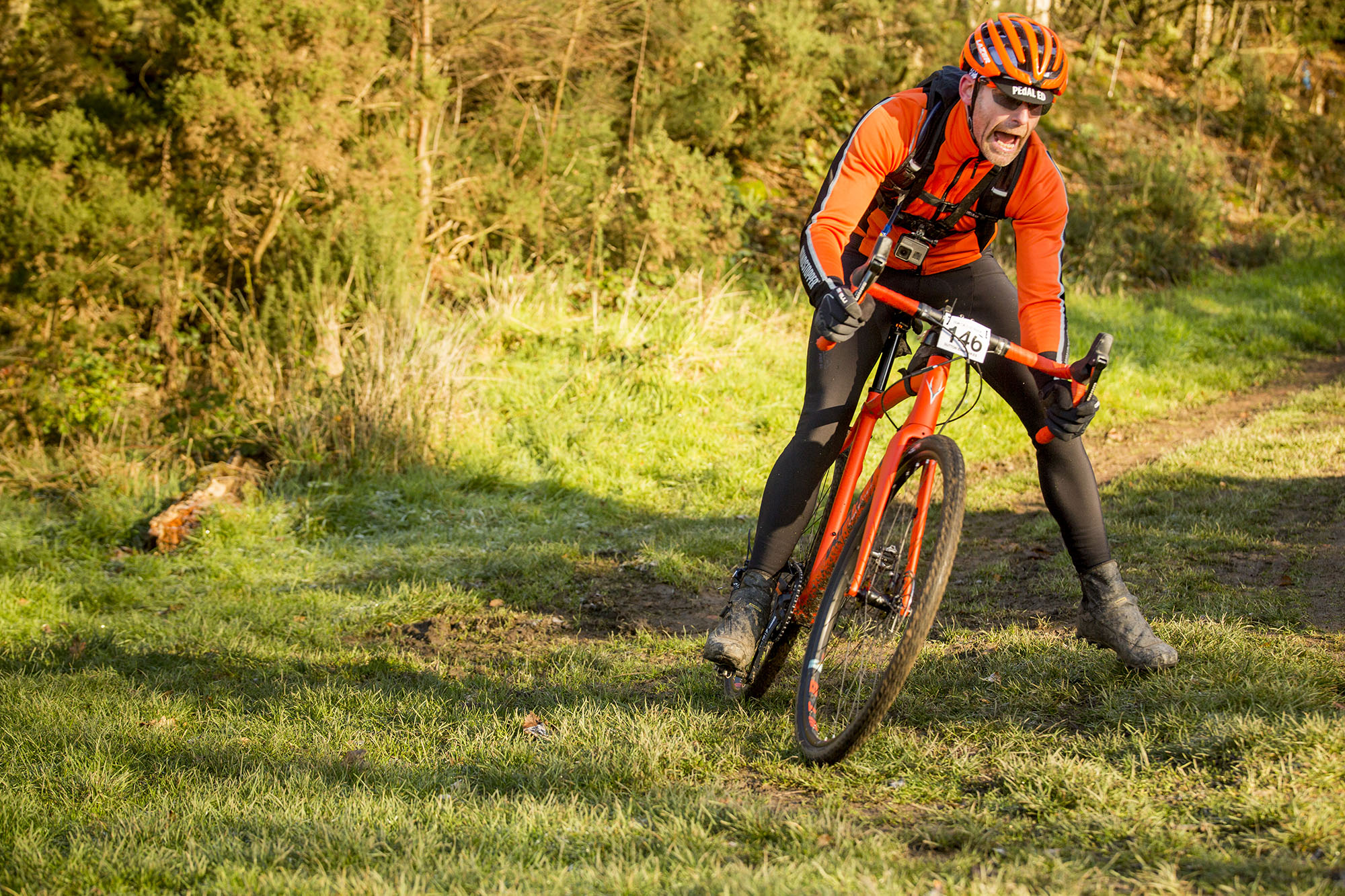
I was riding MTB’s when they really were a lot less capable than modern gravel bikes so I’ve got some real perspective of the similarities between the two. However, unlike those who can’t see the point of sketchily riding dirt on drop bars, I think that the growth of gravel will play a vital part in the growth of MTB too. In the particular reviving interest in mountain biking most people actually do but the media has largely ignored for several decades.
Top of the rock
I’ve hinted at this several times in previous columns but what’s really made me think about it more is starting to work out what bike to take to this year’s Top Of The Rock gravel sportive. I’ve done this event every year Covid has let it happen and I think it’s absolutely fantastic but also fascinating from a ’snapshot of real riders’ point of view.
The event starts right on the edge of the North Yorks Moors at Sutton Bank Bikes and uses the area’s excellent network of old-school singletrack and bridleway linked by occasional back road sections. Perhaps unsurprising if you know that Moto Enduro rider and UK MTB pioneer Adrian Carter has been running events around Yorkshire since the 1980s when he launched the first Pace bikes. The course - with many ‘event only’ sections negotiated by Adrian - inevitably puts it right on edge of what a lot of people would consider gravel biking too. You are going to get a surprise though if you’re expecting something like the fireroad grand prix of the first Gravel National Championships in Thetford last year.
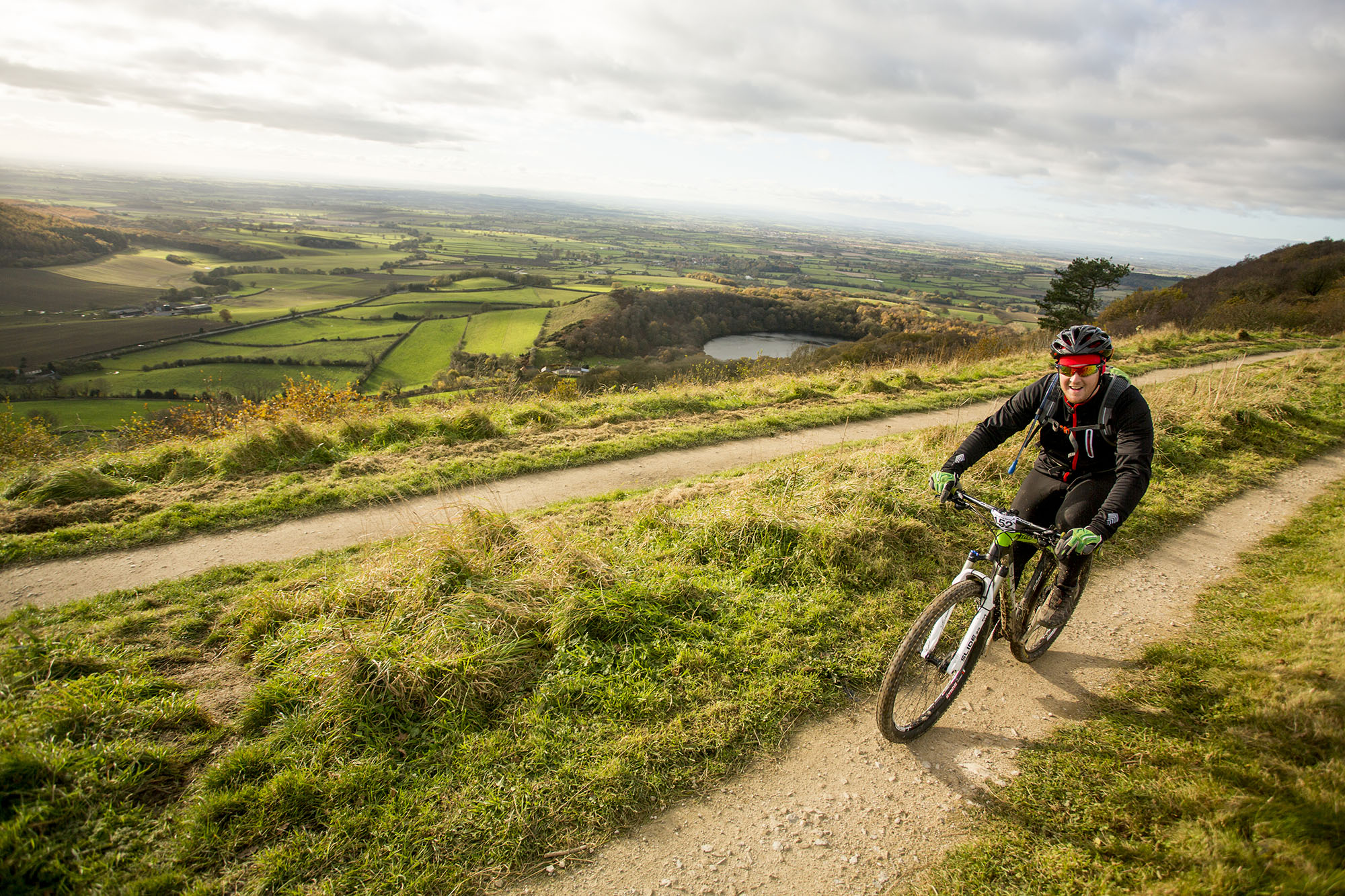
What horse for the course?
The mix of trails and the level of technicality is what makes bike choice so interesting too. The first year I rode it on what was one of the most radical gravel bikes around at the time.
As usual, Whyte was well ahead of the kit and geometry curve with their original Friston as they’d been experimenting with slack head angles and wide drop bars since the then freaky Saxon Cross in 2010. The evolutions of those same features were perfect for the swooping forest singletrack start and smoother sections of the moorland track that make up a lot of the mileage. The 40mm gravel tires scooted along the road fast too, although I had to grab the big bars in the center to hide from headwinds at some points. I was definitely going way too fast into the random rocky chaos of the first big descent for the bike though and while I somehow abseiled to the bottom without pinch flatting or face splatting it was definitely through luck, not judgment.
That meant the next time I turned up to ‘Rock The Tops’ I took it as the perfect opportunity to showcase the latest wide range gears / RockShox Rudy suspension fork, wireless AXS Reverb dropper post and Zipp 101 wheels of SRAM’s XPLR set up. That certainly made things easier on the rocky descents and it also saved me from fatiguing rattle on the long, chunky sections of ancient bridleways that crisscross the moors. Even if impacts were eased I was still trying to juggle drop bar steering on the twisty technical sheep tracks up near Osmotherly though and there is only so much grip 40mm tires can give.
Plus while the host bike was a carbon fiber Santa Cruz Stigmata cross/gravel bike it was pretty steady on the longer back road and fire road climbs because all the extra hydraulics and electrics meant the complete bike was over 10kg. That was only 400g lighter than a full suspension Santa Cruz Blur XC bike I had on test at the same time and a full kilo heavier than my Specialized Chisel hardtail custom build in its skinniest format. Both of which would be a lot more capable, controlled, and faster than the XPLR Stig on the rough stuff.
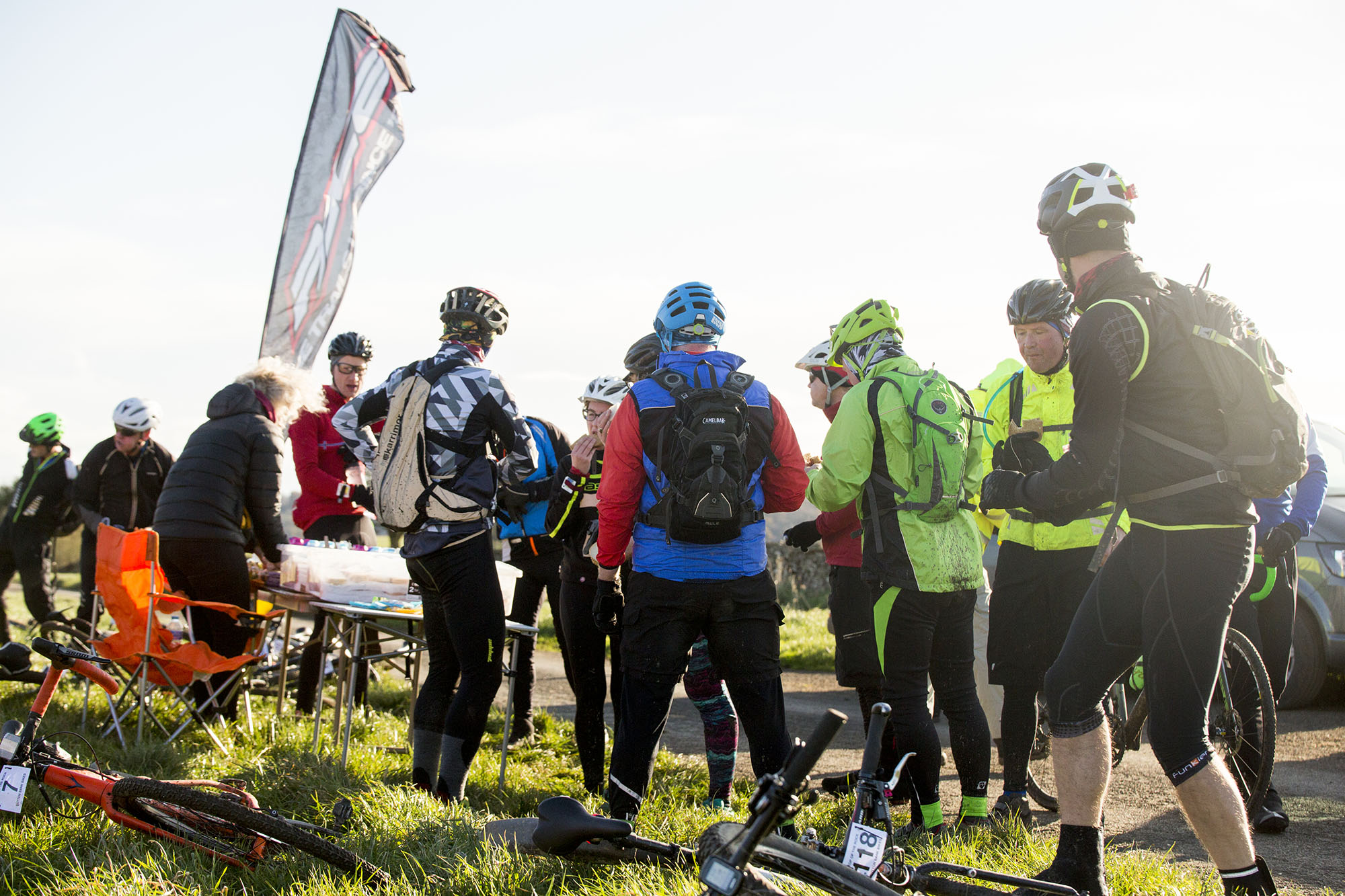
Something for everyone
The other really important thing to remember is that while some chumps like me will always add a speed slant this is primarily a fun challenge for people to complete rather than compete over. And that broad appeal is reflected in the huge diversity of riders I’ve seen at both events. Big lads twiddling up climbs on Enduro bikes because the descents and singletrack are worth the effort. Cyclocross racers in skin suits who fancy a change from the Sunday club run and will finish the longest route before most riders have got to the first feed station. Lads I’ve not seen since they raced for the bike shop I was working at back when Adrian was building his first iconic box section alloy Pace frames in the late 80s but who are no less MTB keen than they were back then. Riders on Marin’s with homemade map boards from a quarter century ago or first-generation twenty-Niners from the early 2000s. A dirt demographic ignored by the media since publishers decided aspirational freeriders were sexier than authentic weekenders, despite the fact that the latter have seen more travel than all the downhill bikes ever made.
And then there’s what I think is the really important group for the future of MTB - the diverse spectrum of new gravel riders. Roadies scared off the tar by traffic but still feeling at home with familiar road brands and drop bars. Mountain bikers whose big bikes are so capable now that anything but a bike park is boring and they don’t want to break bones anymore. The flannel-shirted hipster stereotypes with carefully chosen and arranged luggage full of god knows what considering there are regular and very generous snack stops included in the entry.
And wait, what’s that? Women! At an off-road event. Hell yes. And lots of them too, because gravel biking has been marketed with a much more inclusive, sociable, adventurous, ‘be in nature’ vibe than the threatening extremes of popping vein sausage skin XC racing or gravity bro ‘gnarliness’.
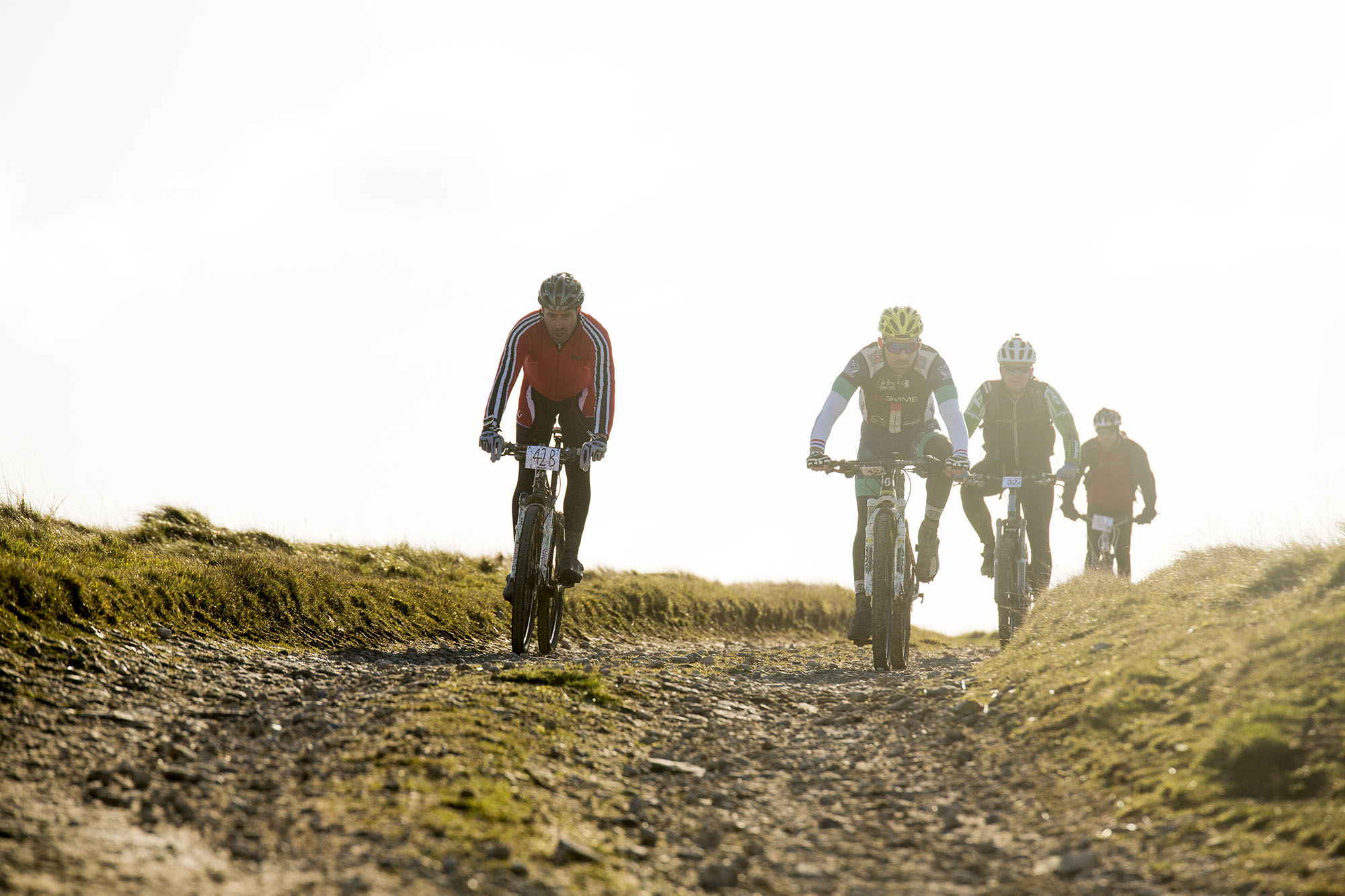
Why gravel will grow MTB
And as this merry band of randoms heads out into the forests and over the moors in mid-April I hope there’ll be the same sense of acceptance and slightly confused camaraderie as there has been at previous events. Created not because everyone has a tribal uniform, regulation bike type, and predetermined ‘acceptable behaviors’ but precisely the opposite. Gravel is great - and growing - because while bike and clothing brands are desperately trying to pigeonhole it to help sell ‘appropriate’ new kit, events like Top Of The Rock offer something for every type of rider and can be fun on all sorts of bikes.
But to get back to my original point, the overwhelming direction that most recreational gravel riders seem to be heading is wanting more control and composure so they can enjoy the more exciting bits of the trail or just get down them without walking or wounding themselves. That’s evidenced by the increasing move towards fatter tire clearances, lower gears, and curious suspension features that make OG mountain bikers chuckle, but let the latest ‘progressive gravel bikes’ get away with a bit more bravery than normal.
And while the gravellists might not know it themselves yet, I can guarantee a lot of the mountain bikers reading this are shouting “just get an XC bike” like the audience at a pantomime. That’s brilliant news for MTB too, because while the traditional XC market has been stagnant for years - partly because the marketing is so race/pain focused but also because those 25-year-old Marin’s and first-gen 29ers still do the job fine - gravel is growing at a hell of a rate. So while not everyone wants to push their limits, if the percentage of gravel riders who arrive back at Sutton Bank Bikes have clearly loved a more challenging adventure is accurate feedback, then gravel is exactly the gateway drug that mountain biking needs.
That’s an addiction I’m very happy to push too, so if you want to see what bike I decide to ride this year while having a great day out on a sweet selection of trails then I’ll see you at Sutton Bank next month. You’d best enter quick though because Cathy and Sophie need to know how many end of event beers to order and you might also need time to decide what bike suits your vibe.
